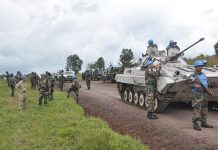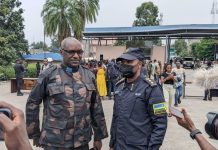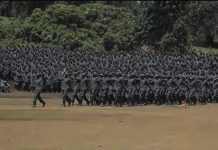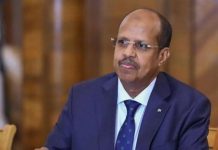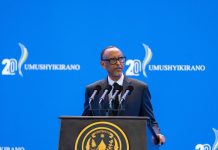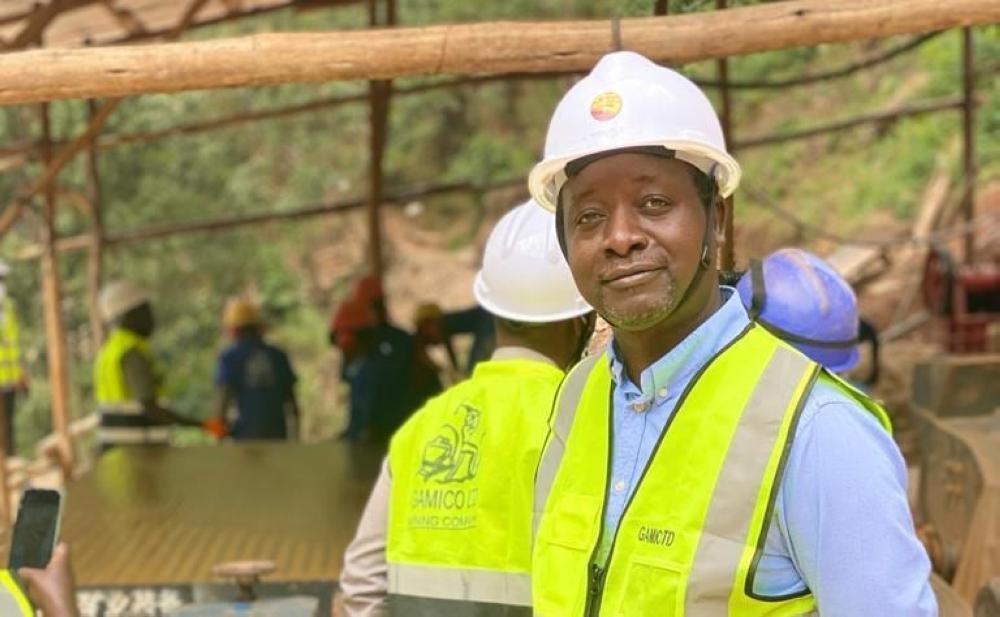
Bernard Nsanzimana
Africa-Press – Rwanda. Following the false accusations that Rwanda steals DR Congo’s minerals, I want to shed light on how Rwanda complies with international conflict minerals frameworks and how this is validated by a good number of international stakeholders. The compliance goes beyond the famous traceability of Tin, Tantalum, Tungsten and Gold (3Ts) where minerals are tagged from the mine sites up to the smelters and manufacturers.
Rwanda started by domesticating the ICGLR’s Regional Certification Mechanism, as aligned with OECD’s Due Diligence Guidance, through the 2012 ministerial regulations on the regional certification mechanism for minerals and through provisions of subsequent mining legal instruments including the current 2024 law on mining and quarry operations.
While referring to the implementation of these international conflict minerals frameworks, so many people only think about the 3Ts traceability, whereas there are so many other efforts invested in making sure that they are not coming from conflict areas of DR Congo. In the meantime, even the 3Ts traceability is done with support from a UK-based ITRI’s Tin Supply Chain Initiative (ITSCI) traceability scheme, implemented in Rwanda by Pact World, a USA organization, between 2011 and 2023 before handing over to Kumbuka Afrika as a Great Lakes regional NGO.
Since 2016, those mineral traceability services are rendered alongside with a UK-based RCS Global Group, formerly Better Sourcing Programme (BSP).
In addition to the 3Ts traceability, there are many more other activities done within the context to make sure that minerals from Rwanda are conflict-free. They include regular mines inspections conducted by Rwanda Mines, Petroleum and Gas Board (RMB). The institution has a department in charge of regulation and inspection with staff at the headquarters, and in every district, to verify that upstream mine operators comply with national and international conflict minerals frameworks.
Beyond the mineral traceability, mine inspectors ensure that there is no child labour and forced labour and that there are no 3Ts from Not-Valid mine site entering into the mine sites or being mixed with minerals produced at their mine sites. Inspectors also check on the extent to which mine operators comply with labour, health, safety and environmental laws, regulations and standards, among others.
Moreover, mineral exporters have an obligation to make self-assessment and to make on-the-ground assessments of their mineral suppliers, and submit annual reports on the same assessments. The assessments cover various areas including human rights, security issues, working conditions, environment, legal obedience, community relations and the chain of custody.
Above all, the ICGLR secretariat, in collaboration with stakeholders including the Government of Rwanda through RMB and ITSCI implementing agencies organizes a third-party audit with independent auditors who include experts with advanced knowledge on auditing, RCM standards and its appendices, the chain of custody systems, conflict financing, geology and mining, social and political conditions, ICGLR region, as well as linguistic skills appropriate to the region being audited.
The audits assure independent verification that exporters’ mineral chains from mine site to export are in conformance with mineral traceability and certification requirements.
The third-party audits’ findings help to decide if operations will continue or be suspended or even if the mineral licenses are to be revoked.
All in all, 3Ts from Rwanda are not only tagged within the mineral traceability and certification framework but they are also subject to regular inspections by RMB, internal self-assessment by mineral exporters who also carry out on-the-ground assessment for their mineral suppliers. The efforts that are complemented by ICGLR’s third-party audits; all with close supervision by ITSCI implementing agencies.
So far, qualified international agencies have never accused Rwanda of failing to comply with the international conflict minerals frameworks concerning the mineral supply chain transparency.
Unexpectedly, there are false accusations that Rwanda steals DR Congo’s 3Ts, whereas, as I have explained above, UK and USA based organizations have been supervising the traceability of Rwanda’s 3Ts in addition to active roles played by the ICGLR Secretariat and other efforts by Rwanda to domesticate and implement the same frameworks.
And, recall that, geologically, Rwanda is situated in the Karagwe-Ankole Belt (KAB) which also comprises Burundi, north west Tanzania, south west Uganda and the Kivu–Maniema region in DR Congo; a metallogenic area hosting various granite-related mineralization, which contains cassiterite, coltan, wolframite, lithium, beryllium and others.
Consequently, Rwanda hosts a variety of minerals including the 3Ts which have been mined by Belgian corporations since 1930s.
Source: The New Times
For More News And Analysis About Rwanda Follow Africa-Press

